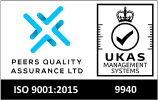In today's highly competitive job market, having technical expertise and a solid educational background may not be enough to secure your dream job. Employers are increasingly recognising the significance of soft skills, essential traits that go beyond technical abilities and educational qualifications.
Mastering a variety of soft skills can help to significantly boost your chances of standing out during the job search process and make you a more attractive candidate to employers. In this blog post, we will explore five key soft skills that employers seek and how you can develop and showcase them effectively.
1. Communication Skills:
Effective communication is a cornerstone of success in any workplace. Employers look for candidates who can articulate their ideas clearly and concisely, whether it's through written communication like emails and reports or verbal communication during meetings and presentations. Moreover, active listening is equally important, as it demonstrates empathy and a willingness to understand others' perspectives. To improve your communication skills, consider taking public speaking courses, participating in group discussions, or seeking feedback on your writing.
Communication skills are vital in every aspect of professional life. Whether you are collaborating with team members, presenting your ideas to stakeholders, or resolving conflicts, effective communication ensures that your message is understood accurately and fosters a positive working environment.
2. Emotional Intelligence:
Emotional intelligence refers to the ability to understand and manage emotions, both in oneself and in others. Employers value candidates who can navigate challenging situations with empathy, remain composed under pressure, and build positive relationships with colleagues and clients. Developing emotional intelligence involves self-awareness, self-regulation, empathy, motivation, and social skills.
Emotional intelligence plays a significant role in building strong interpersonal relationships. By recognising and understanding your emotions and the emotions of others, you can respond appropriately in different situations. This skill is particularly essential when working in high-pressure environments or handling sensitive matters.
3. Adaptability and Flexibility:
In a rapidly changing world, adaptability and flexibility have become crucial attributes in the workplace. Employers want employees who can embrace change, learn new skills, and adjust to evolving circumstances. Highlight experiences on your CV where you successfully adapted to new challenges or demonstrated flexibility in handling unexpected situations. During interviews, emphasise your ability to thrive in dynamic environments and your willingness to take on new responsibilities.
Adaptability and flexibility are vital in today's fast-paced work environment. Employers seek candidates who can quickly adapt to new technologies, market trends, and work processes. Being flexible in your approach allows you to take on diverse tasks and challenges, making you a valuable asset to any organisation.
4. Problem-Solving Abilities:
Companies are constantly faced with challenges, and employers seek candidates who can think critically and come up with innovative solutions. During your job search, provide examples of how you've tackled problems in your previous roles or academic projects. Showcase your ability to analyse situations, identify potential solutions, and implement effective strategies. Highlighting your problem-solving skills will demonstrate to employers that you can contribute to their organisation's success.
Problem-solving skills are highly sought after as they help businesses navigate complex issues and make informed decisions. Employers value candidates who can approach challenges with a proactive mindset, finding practical solutions that lead to positive outcomes.
5. Leadership and Initiative:
While not all roles require formal leadership positions, employers value candidates who can take initiative and lead when necessary. Leadership traits such as decision-making, delegation, and inspiring others are sought after in potential hires. Be prepared to share stories of how you've taken the lead in challenging situations, mentored colleagues, or initiated projects that brought positive change to your previous organisation.
Leadership and initiative are essential for driving progress and growth within an organisation. Whether you are leading a team or taking charge of a project, showcasing these qualities demonstrates your ability to motivate and inspire others towards achieving common goals. Keep an eye out for our blog post on 'Leadership Impact' next week.
In conclusion, mastering these five key soft skills is vital in today's job search landscape. Employers seek candidates who not only possess the technical qualifications but also demonstrate a strong set of soft skills that contribute to a productive and harmonious work environment. By focusing on developing and showcasing these traits, you can increase your chances of landing your desired job and thriving in your career.
Remember, soft skills are not innate, but rather can be cultivated through conscious effort and continuous practice. Invest in your personal development, and you'll undoubtedly stand out from the competition in your job search journey.












